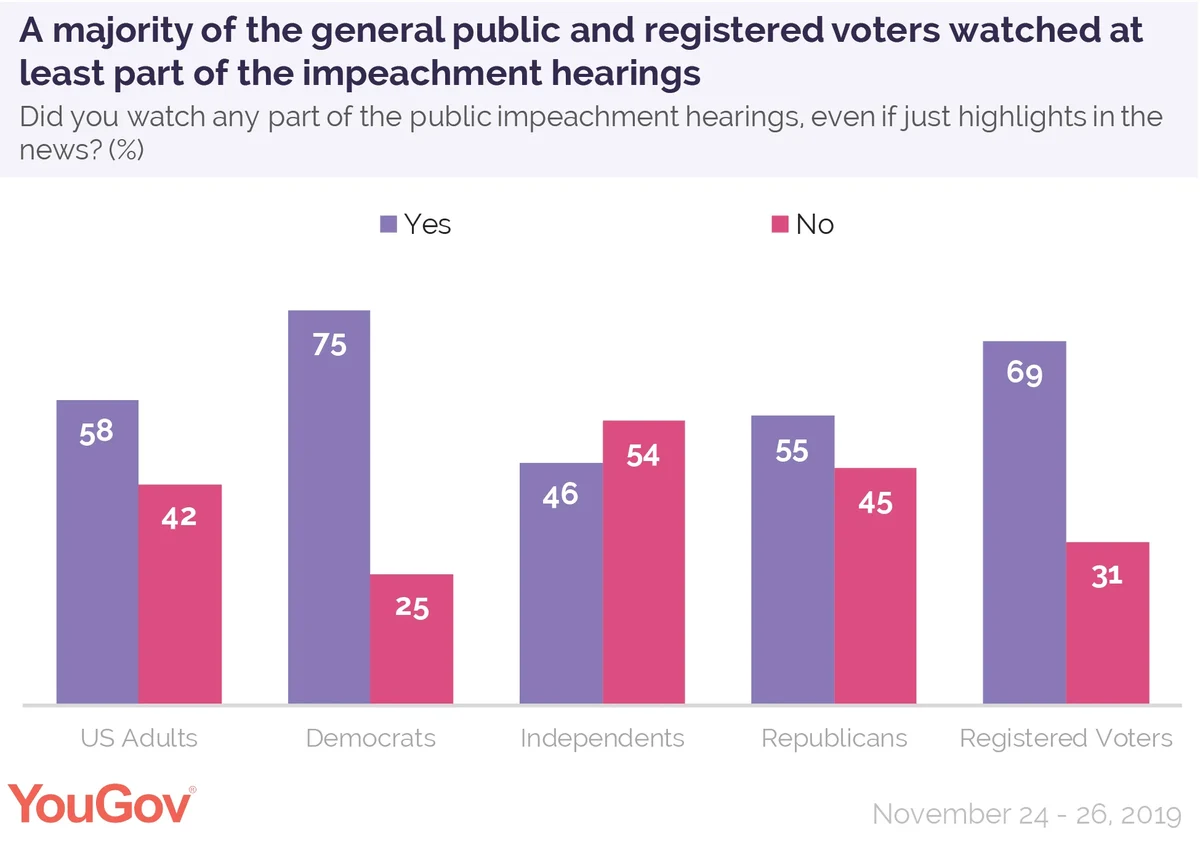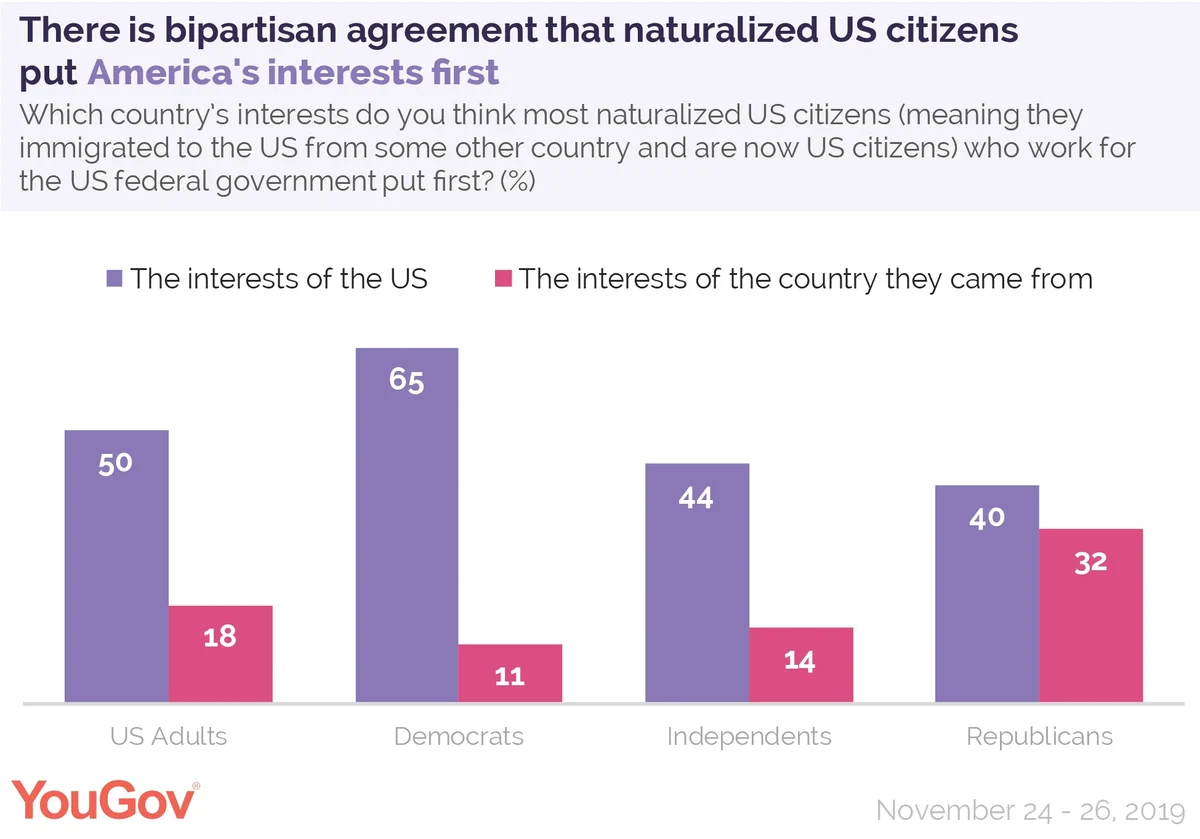The public impeachment hearings may not have changed many minds when it comes to whether or not President Donald Trump should be impeached and removed from office, but the Economist/YouGov Poll suggests that most Americans were at least somewhat interested in those hearings, with more than half claiming to have watched at least some of them—although not necessarily as they happened.

Three in four Democrats watched at least some of the hearings (75%), along with more than half of Republicans (55%). Independents, who tend to be younger and less interested in politics than those who identify with a party, were the least likely to see the hearings (46%).
Support for impeachment remains much as it was before the hearings. A plurality (46%) support impeachment, while 38% oppose that. A majority of Democrats (85%) but only one in ten (10%) Republicans are in favor.
What viewers saw – and remembered – from the hearings were four leading witnesses, whose testimonies were seen by 46% or more of those who watched: Lieutenant Colonel Alexander Vindman, Director of European Affairs for the National Security Council (46%), Marie Yovanovitch, former Ambassador to Ukraine (53%), Fiona Hill, formerly at the National Security Council, specializing in Russian and European Affairs (55%), and Gordon Sondland, Ambassador to the European Union (62%). Republicans viewers were nearly as likely as Democratic viewers to have seen each of these witnesses.
Republicans and Democrats differ when it comes to whether or not they believed the testimony that each witness gave. Most Democrats believe each one gave mostly truthful testimony. Republican viewers are closely divided on Sondland’s testimony, half believe Hill gave mostly untrue testimony, and even larger majorities of Republican viewers believe Yovanovitch and Vindman were mostly untruthful.
Vindman and Yovanovitch gave testimony especially damaging to the President, which may help explain Republicans’ negative reactions. But both are also ethnically Ukrainian, and their parents had lived in the former Soviet Union (Vindman was born in what is now Ukraine, while Yovanovitch was born in Canada after her parents emigrated there). Hill is also an immigrant and was born in the United Kingdom.
Immigrants in the US government can face skepticism from some Americans, although fewer than one in five overall (18%) think naturalized federal employees put the interests of the country they came from over the interests of the United States. Nearly three times as many (50%) think naturalized citizens in the civil service put US interests first. Republicans, however, are much more conflicted about immigrant public servants. About one-third (32%) of Republicans believe naturalized citizens put the interests of their home country first, while four in ten (40%) of Republicans say they put US interests first.

Those who personally know a federal employee have better opinions of them. Americans still think that federal service is a good career: by 49% to 21%, they would encourage a young person considering going to work as a federal civilian employee.
The President personally took aim at Yovanovitch while she was testifying, claiming that “everywhere [she] went turned bad.” 61% of the public believe that tweeting attacks on witnesses while they are testifying is inappropriate. Just 22% find it appropriate. Republicans see it differently: 45% of Republicans call the tweet attacks on Yovanovitch appropriate, 32% disagree. The public’s attitude about the witness attack tweets is not much different from Americans’ consistent reaction to the President’s tweeting in general.
Related: How America rated President Donald Trump’s tweet about Ambassador Marie Yovanovitch
See the full survey results and toplines from The Economist/YouGov
Image: Getty








